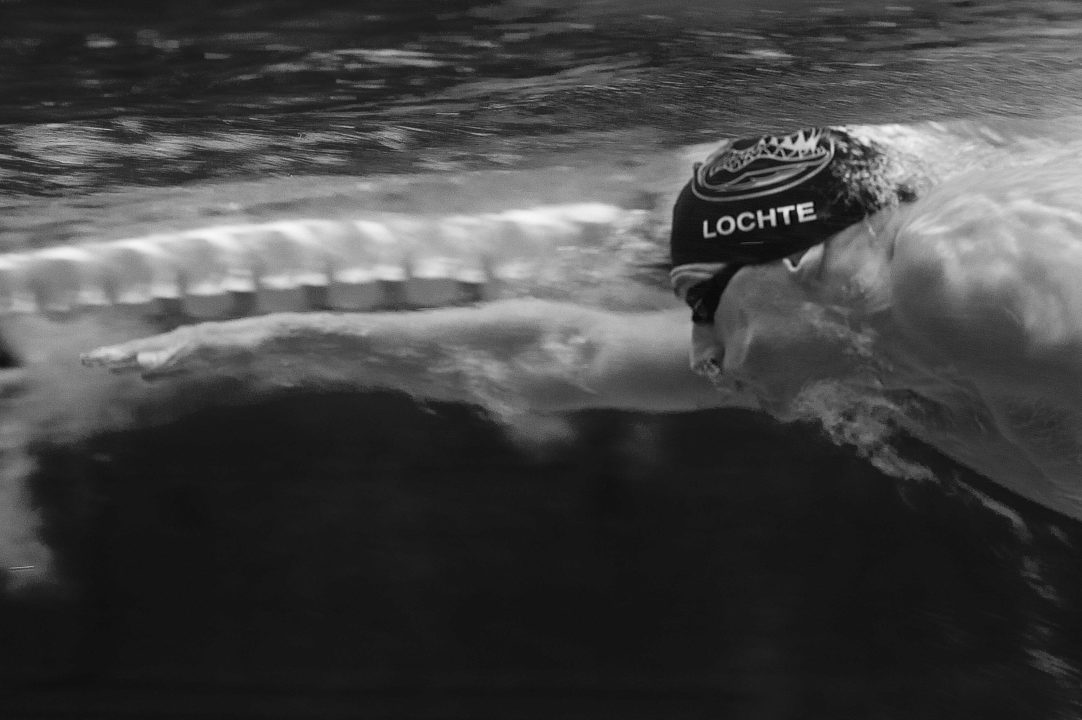Courtesy of Trevor Ziegler (Featured Image: Ryan Lochte)
In a perfect world, there would be a simple checklist that ensured success when it came time for your next big meet. If only swimming were as easy as training hard, eating right, and getting plenty of rest. Unfortunately, there are countless other key elements that could drastically impact an athlete’s success during a meet. Among these many components, the swimmer’s mental preparation is often one of the most overlooked pre-meet factors.
Even with months of hard training and top-notch physical care under your belt, meets can be made or broken as a result of the swimmer’s level of mental readiness. However, with the proper preparation, any swimmer can mentally-equip themselves to swim at their highest ability. Check out our 5 simple ways to conquer those pre-meet jitters!
1. Trust your training
You wouldn’t use your Geometry textbook to study for a History test, right? This is essentially the same as a swimmer who races completely different from the way they train. Not only does this drive your coach bonkers, but it also forces the swimmer to overthink during a race. Yes, thinking is good; but too much thinking come race-time will ultimately do more harm than good. The solution: train the way you want to race. Allow yourself the ability to put your brain on autopilot during races so you don’t have to concentrate on doing a million little things. Your main focus should always be to swim fast.
2. Have a plan
It helps to have an established pre-race routine to minimize any unneeded stress. A great tool for a swimmer is to create a “20/10/2 Plan”. A 20/10/2 Plan is when a swimmer pre-determines what they want to be doing 20 minutes, 10 minutes, and 2 minutes before any race. Although it may not seem like a revolutionary concept, it does wonders for those swimmers who find themselves racing to the blocks just moments before their heat is up.
3. Visualize your races
This might be the only time your coach will encourage having your head in the clouds so take advantage of it! Taking the time before a meet to visualize your races is a great way to harness your mental energy in a positive way. Not only does visualization help boost an athlete’s confidence, it also aids in reinforcing proper technique so that they become almost second nature for a swimmer.
4. Stay positive
Going into an event with a specific attitude more often than not, creates a self-fulfilling prophecy. If you go into it thinking you’re going to do well, there’s a good chance you’ll do well. Conversely, if you go into an event with a negative mindset, don’t be surprised if you end up not doing as well as you’d like. The best swimmers treat all of their races like they’re going to swim a lifetime best. It’s incredibly easy to create excuses for yourself before a race; it takes true guts to ignore any negative thoughts and maintain a healthy level of confidence.
5. Keep it loose
Don’t sweat the small stuff. At the end of the day, even with the proper mental and physical preparation, there are countless other factors outside of the athlete’s control that can come into play during competition. The only way to combat such unforeseen circumstances would be to stay loose mentally and have some fun. Simplicity is the name of the game and there’s no use getting too wrapped up in external elements such as time standards or the performances of other swimmers. The most important thing any athlete can do is to remind themselves that, above all things, swimming is supposed to be fun!

so…
#1) Dumb It Down!
2-Focus on 1 thing
3-See that thing
4- Be happy about it
5) Just Do It